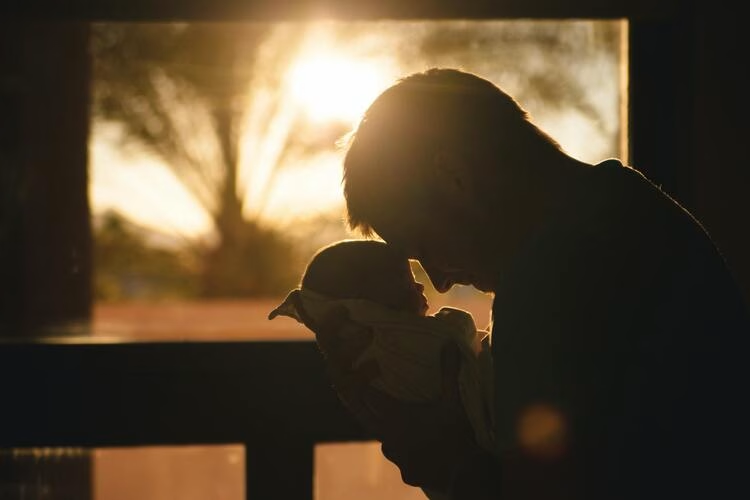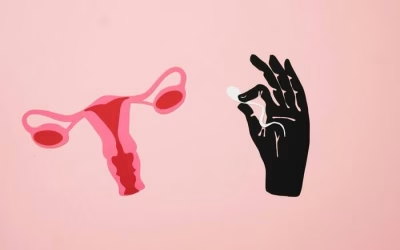Every October 15th marks International Pregnancy and Infant Loss Remembrance Day, a date dedicated to bringing visibility to something that has been shrouded in silence for far too long: the grief experienced by those who lose a pregnancy or a newborn. At Nascere, this day calls us to speak with sensitivity, information, and empathy about one of the most challenging experiences in reproductive life.
What is pregnancy loss or miscarriage?
Pregnancy loss occurs when a pregnancy ends naturally before the 20th week of gestation. It happens far more often than most people realize: it’s estimated that between 10% and 20% of clinically recognized pregnancies end in miscarriage, frequently before the 12th week.
Even with all our medical advances, pregnancy loss can happen due to factors beyond human control. It’s no one’s fault, not the body’s, not the emotions’. It’s a biological consequence of multiple factors that converge during embryonic development.

Why does pregnancy loss happen
The causes can be diverse, but research shows that in most cases, early losses are due to genetic abnormalities in the embryo. This means the embryo didn’t have the necessary chromosomal makeup to continue developing viably.
Among the most common causes are:
- Chromosomal anomalies, such as trisomies and monosomies, chromosomal alterations where there’s either an extra chromosome or one missing, preventing normal embryonic development.
- Hormonal issues, like insufficient progesterone production (the hormone the body generates after ovulation to maintain early pregnancy) or thyroid imbalances.
- Uterine anatomical alterations (septa, fibroids, or polyps).
- Immunological or coagulation factors that can affect implantation or blood flow to the embryo.
- Advanced maternal age increases the likelihood of eggs with genetic abnormalities.
It can also happen during fertility treatments
In assisted reproduction treatments like In Vitro Fertilization (IVF), extremely high medical controls and care are applied. Even so, pregnancy loss can occur due to multiple causes: in many cases, genetic factors of the embryo are involved (chromosomal alterations that prevent its development), male factors (sperm quality), uterine or endometrial conditions, hormonal problems, or immunological factors. At Nascere, we take a comprehensive approach: genetic studies of embryos when appropriate, evaluation of both partners (male and female), and diagnostic assessment of the uterine cavity to understand and reduce risks from every possible angle.
The psychological impact: grief that isn’t always acknowledged
Losing a pregnancy, even in early stages, can generate a profound sense of emptiness, guilt, and sadness. Sometimes people feel their pain “shouldn’t be this intense” because “they never got to meet them,” but that thinking only makes the loss invisible.
Perinatal grief is real. It’s the loss of hope, of a life project, of a bond that had already begun forming. And like all grief, it needs time, support, and emotional validation.
In our experience at Nascere, we’ve witnessed how specialized psychological support can make all the difference in navigating this process. It’s not just about “moving forward,” but about giving space to the pain and transforming it with professional and human accompaniment.

“Wave of Light”: a way to honor the absence
Every October 15th, families worldwide participate in the “Wave of Light,” a symbolic gesture to remember babies who left too soon. At 7:00 p.m. in each time zone, a candle is lit for one hour, creating a luminous chain traveling across the globe.
It’s an intimate yet collective moment. It doesn’t seek to reopen wounds, but rather to acknowledge that this love existed, even though life didn’t have time to flourish. Lighting a candle, writing a letter, or simply keeping a moment of silence can be a powerful way to reframe the loss.
The importance of support groups and psychological accompaniment
Going through pregnancy loss in isolation can intensify the anguish. That’s why support groups (both in-person and online) are valuable spaces where people share their stories without judgment.
Connecting with emotional support networks and professionals specialized in perinatal grief can make a real difference in the recovery process. Emotional health is also part of reproductive health, and recognizing this allows for healing with greater awareness, containment, and hope before attempting a new pregnancy.
How we approach pregnancy loss at Nascere
At Nascere, we believe that accompanying pregnancy loss goes far beyond medical protocols. It involves seeing the person in their entirety: their body, their mind, and their emotional environment.
That’s why our approach combines:
Complete medical evaluation to identify possible biological, physiological, or genetic causes.
Personalized follow-up, respecting each person’s physical and emotional timeline before resuming treatments.
Genetic counseling is recommended when pregnancy loss has been recurrent, to plan future pregnancies with greater information and security.
We understand that no words can erase the pain of pregnancy loss. But what we can offer is our presence when you need it, our willingness to truly listen, and support that adapts to where you are in your journey. This is how we walk alongside every person who trusts us with their story.

Trying again: when hope also heals
After a loss, many people fear trying again. It’s understandable. The fear of reliving the pain can be paralyzing. But with time, and with proper medical and emotional support, hope can be reborn.
Trying again doesn’t erase what was lost, but it does carry forward everything you’ve learned, about your body, your resilience, your capacity to hope. At Nascere, we honor both the grief and the courage it takes to move forward, accompanying you with compassionate care and medical expertise that turns possibility into reality.
Because loss doesn’t erase the possibility of life. Acknowledging grief is the first act of love toward oneself; trying again is the second.



